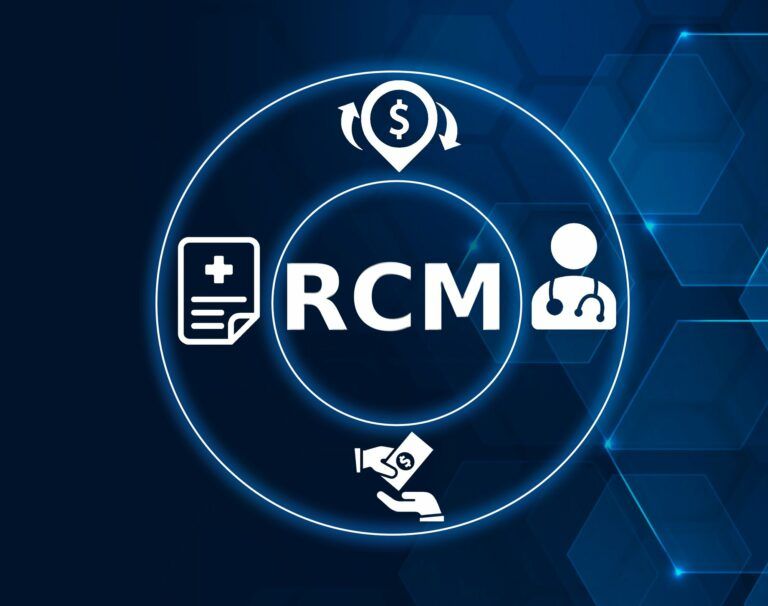Medical Billing Collections: A Guide for Providers and Patients
All hospital organizations struggle to collect money owed to them and let’s face it, no one enjoys working with a debt collection agency; AccessOne offers a better way.
To better serve patients while minimizing losses, it is important for providers to understand recent changes to medical billing collections and patient payments.
For patients, learning how the billing and collections system works (including financial assistance options and debt collection processes) is essential to avoiding confusion and effectively navigating the healthcare experience with their healthcare provider.
Let’s address some crucial focus points for patients and revenue cycle teams to help both parties better navigate the process of medical billing collections.
For Healthcare Providers
To say that a lot has happened in the world of healthcare since the start of the COVID-19 pandemic in 2020 would be an understatement. Here are three changes/trends in the law since 2020 that have impacted healthcare billing and collections.
1. Medical Bill Collections Laws 2021
Medical bill collection laws are changing quickly, and there are cases where a medical bill wrongfully sent to collections can be a problem. With medical debt forgiveness now a nationwide priority, it is critical to understand some of the legislative changes that have recently been proposed.
One such proposal is the Medical Debt Relief Act 2021.
Introduced by Senator Chris Van Hollen (D-Md.), this legislation intended to prevent healthcare providers from taking extraordinary actions to collect money on the bills owed to them during the pandemic. Although not yet a law, many states are introducing similar measures, and there are a number of potential changes that healthcare providers need to be on the lookout for.
For example:
- Providers might not be allowed to sell an individual’s debt to another party.
- They may not be able to take actions that require a legal process.
- They may not be allowed to report adverse information to credit bureaus.
With respect to credit, this proposal would require a one-year waiting period before medical debt can be reported on a patient’s credit report, and all medical bills that have been paid in full or settled would have to be removed from credit reports immediately (e.g. Equifax, Experian, & TransUnion).
Similar legislation has already been passed in many states, including Maryland, California, Colorado, New Mexico, and Illinois.
2. Surprise Billing Laws
As stated above, legislative changes with respect to medical billing and collections have recently built momentum at the state level. Many new laws focus on the concept of “surprise billing” and “balance billing.”
One such example is the Texas Balance Billing Law 2020.
Surprise billing laws have been put in place to prevent patients from going to an ER or an ancillary service and ending up with a massive bill they cannot pay. Even though the way balance billing laws are structured can vary from state to state, it is still important for medical providers to be familiar with how these new laws work.
Surprise billing laws look to protect patients against surprise bills in situations where they don’t have a choice of where to get care. Instead of passing the responsibility on to the patient, the healthcare provider and the insurance company must employ an arbitrator to help them decide how much to charge for the services provided.
To learn more about the implications of surprise billing laws at the state level, check out this comprehensive resource from The Commonwealth Fund. For more information on surprise billing laws at the federal level, read our recent article on the topic. If you have any questions regarding billing practices, collection policy, or balance bills, please reach out to our ombud who can assist you.
3. Medical Debt Forgiveness: Recent Executive Orders
There are plenty of organizations that help pay medical bills, and there are multiple medical debt forgiveness programs available.
One notable development is the Biden Administration’s recent Executive Orders focused on increasing consumer protections and easing the burden of medical debt. The orders look to hold medical providers and debt collectors accountable for harmful practices by requiring them to offer non-predatory payment plans or financial assistance to all eligible patients.
These orders also reduce the role that medical debt plays in determining access to credit.
Medical debt can have a significant impact on a patient’s credit score, and these orders are designed to prevent that from happening while providing those with medical debt new opportunities to purchase a home or acquire a small business loan (with a special focus on low-income American veterans).
As stated in the White House press release:
“Medical debt is not a reliable indicator of credit quality, and its impact should be reduced or eliminated to give more American families the opportunity to thrive.”
For Patients
In simple terms, medical billing collections is a process that healthcare service providers engage in to get reimbursed for services they provide to patients. Oftentimes, it can be difficult for patients to navigate their responsibility and understand how much they owe.
Even worse, patients might be forced into using their credit card to satisfy a balance, creating ill-feelings towards a provider (even when a quality service is rendered). To better align with patients who might have balances owed after health insurance has been applied, it’s important to understand their concerns.
There are three common questions that patients typically ask about the billing and collections process.
1. What Are the Consequences of Unpaid Medical Bills?
There are a lot of patients wondering what the consequences of unpaid medical bills are. In most cases, if medical bills are not paid, they will end up going to collections.
It is far easier to deal with a healthcare system that can help facilitate a payment plan than it is to negotiate and settle with a collections agency. Furthermore, if someone does not pay their medical bills, this could lead to medical bankruptcy. This is a significant legal issue that could be an expensive process to resolve. However, the credit card debt resulting from hospital bills is also a major concern. What to do?
All of this could be completely avoided if a patient is willing to work with a healthcare system to set up a payment plan. That is why it is important for hospital systems to remind patients of the hospital bill they have to pay instead of automatically sending them to a debt collection agency.
2) Can I Negotiate My Medical Bills in Collections?
For those who are wondering how to negotiate medical bills in collections, this can be a difficult process.
Here are some practical steps that patients can take:
- Determine the statute of limitations.
- Demonstrate financial hardship.
- Make an offer.
First, patients should determine their legal rights. If the statute of limitations has run out, then you may not be responsible for payment.
Next, if you can demonstrate that the medical debt, together with other bills, is likely to result in bankruptcy, debt collectors from the debt collection agency may be willing to work out a favorable settlement. Finally, as most collections agencies may be willing to accept less than the full amount owed, it doesn’t hurt to make an offer, even if you are not facing financial hardship.
To learn more about patient rights and protections when it comes to medical bills and collections, check out this article from the Consumer Financial Protection Bureau. It provides valuable information on insurance companies, hospital bills, debt collection agencies, billing practices, ombud, balance bills, No Surprises act, collection policy, hospital facilities, rohit chopra, charity care, credit card debt, debt buyers, medical billing collections, credit reports, debt collection practices, and credit card usage.
3) Can I Go To Jail for Not Paying Medical Bills?
Even though you may have to go to court, you cannot go to jail over medical debt. Outstanding medical debt is a civil matter, not a criminal one, and by law, you can’t go to jail for a civil debt. However, it is important to be aware of the billing practices of the health care provider, hospital facility, or debt collection agency regarding your hospital bill.
If a debt collector thinks that they will not be able to recover funds from you, they will likely use the judicial system as a last resort. If this is the case, you must show up and follow the procedures set out by the court. If you skip the court proceedings, a warrant may be issued for your arrest, and you would spend some time in jail for ignoring a court order.
Given the additional potential consequences of not paying a medical debt (e.g., medical bankruptcy, credit implications, etc.), it is important for all patients to work with a financial planner who can help them negotiate a settlement price with a collection agency. That way, they can settle their debt in a way that will not lead to long-term consequences.
Avoid Collections, Optimize Billing With AccessOne
Medical billing collections can work differently from organization to organization, but there tend to be a few common elements.
To begin the billing process, most healthcare organizations will send three physical paper statements to a patient at home. Then, they may make two phone calls attempting to collect the payment before the bill is transitioned to a debt collection agency.
Overall, the traditional billing workflow is an inadequate strategy for collecting payments from patients. That is why such a high percentage of patient bills end up going to a medical billing collections agency. The reality is that most healthcare providers might only be collecting $ 0.30 out of every dollar they bill if they decide to sell outstanding balances to a collections agency.
This is not only unsustainable financially, but it is not a patient-friendly experience. There are better ways to reach patients and ask them to pay their bills.
For example, a lot of people are used to receiving text messages.
Hospital systems may be surprised at just how many people pay their bills when they are simply reminded they have one outstanding. Using an SMS system to remind patients of medical bills they have to pay can make a significant difference in the ability of a hospital to balance its books while providing an improved patient experience.
AccessOne’s MobilePay solution not only provides patients with an SMS notification when a bill is due but allows them to pay in full from their mobile device via the payment method of their choice, including credit card, PayPal, Google Pay, and Apple Pay. Patients can easily pay their hospital bill from their mobile device.
Are you interested in learning more about how your healthcare organization can increase payments collected by 10-20%?
Reach out and schedule a demo today.


